TIFF Diary #5: The Long TIFF Closes
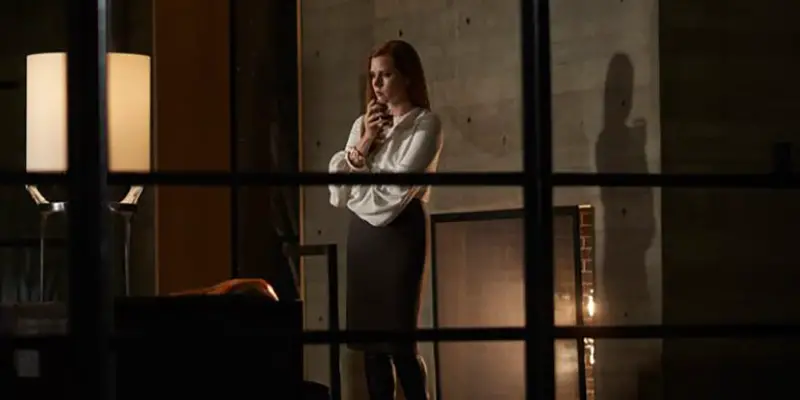
Tomas is a chronic cineaste who studied English literature in…
The last weekend of TIFF is always bittersweet. On one hand, you’re so sleep-deprived from all the morning/early afternoon screenings that it’s a relief to have your regular schedule back in order. And yet, on the other, you feel a pang in your gut as you realize that the end is nigh – no more friendly crowds, no more of those endearingly irritating commercials, no more Q&As and no more beautiful venues to ogle over as you wait for the programmer to introduce the film (and TIFF has some cool programmers, too).
I saw a grand total of sixteen films this year, which was the most I’ve ever seen at TIFF; I can’t imagine how worn out those who saw more were. They must have spent a good amount of money on coffee.
Loving (Jeff Nichols)
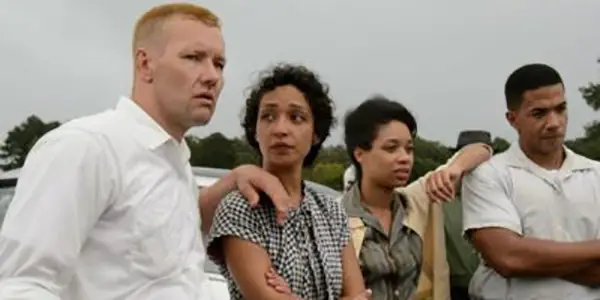
Friday, September 16th was my seventh day at the festival, and after doing a triple-header the day before, I (fortunately) spared myself another long day by sticking to only one offering: Jeff Nichols’ Loving. I was back at the gorgeous Elgin Theatre on a reasonably gorgeous afternoon weather-wise, and though I was still feeling some of the fatigue from my long Thursday, I was much more alert for this screening because I knew it was not going to be a loud, boisterous film. From earlier reactions after it screened at Cannes, I knew full well that Loving was going to be Nichols at his most understated, and those critics who deemed it so were not wrong. It is a very quiet, restrained film that some will not like by virtue of its lack of dynamic action.
It stars Joel Edgerton and Ruth Negga as Richard and Mildred Loving, an interracial couple who lived at a time when such a union was still discriminated against, and who had to leave their families because their home state of Virginia was unwilling to recognize their marriage. Because both were very introverted, quiet people, Nichols chooses to match the film’s tone to their personalities, and I thought it was an appropriate decision on his part.
Their dignity and bravery stand tall against everything else, and both Edgerton and Negga offer beautiful, sensitive performances that rely on flickering expressions, subtle body language, and vocal intonations to convey every semblance of emotion needed to bring the Lovings back to life. Negga has been especially lauded for her talent, but I think Edgerton is just as good, and both build on each other’s performance without threatening to overshadow the other.
If there’s anything to criticize in Loving, it’s perhaps the lack of dramatic tension that doesn’t quite justify the two-hour running time. Though Nichols does his subjects justice, he does also risk alienating some of his audience with his overtly languid approach, and I did get the sense that some of my audience felt the film lacked some heft (though the applause was quite warm).
Others probably wished the acoustics in the theater were better, as some segments of thickly-accented dialogue were somewhat hard to discern. Fortunately, the film is not very dialogue-driven, so that didn’t matter to me. What mattered was the film’s overall quality, and I can say that it does a very solid job of honoring its subjects without mythologizing them out of proportion.
Certain Women (Kelly Reichardt)
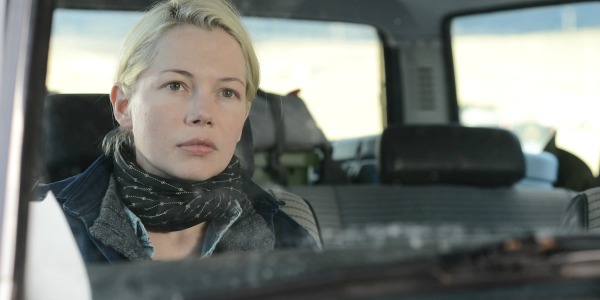
Saturday the 17th was overcast and not ideal for TIFFing without a coat or (at the very least) an umbrella; fortunately, I always carry an umbrella with me, so I was prepared for the worst. At my first port of call, Scotiabank Theatre, I was safe either way, since I arrived after the line for Kelly Reichardt’s Certain Women already moved inside. The downside was that I had to plop down in one of the front rows, but truthfully I was too tired to even care. When the festival nears its end, you tend to get less fussy when it comes to ideal seating—all you want to do is see the film. And if you’re one of those people who like standing in the Rush lines (which exist for people who want to take a chance with sold-out screenings, in case there are seats available once the ticketholders have been processed), you can’t afford to be fussy in the first place.
As I sat and waited for the programmer, a guy around my age sat down a few seats next to me, and he looked somewhat familiar to me. And it wasn’t that I had seen him at another screening—I genuinely believe he was in a university course I took a few years ago. I didn’t ask him because at the time I wasn’t 100% certain, and I tend not to go out of my way if I’m not certain, but thinking back now I do think he was a former classmate. And what a coincidence that I saw him at Certain Women, because it’s a film that really revels in how small our world is: a world so small that three separate stories can intersect and interact in profound, illuminating ways.
The less said about the plot, the better, because there is no one unifying plot in the first place, and the film works best when you go in cold, not knowing what to expect or how it will develop. Laura Dern and Michelle Williams anchor the first two segments, and both are fantastic in their own ways; Dern is an exquisitely sensitive presence in a tale that deals with equally sensitive subject matter, while Williams shapes a slightly off-putting character with a good deal of nuance (though it’s her segment that requires the most interpretation, as I’m sure most who’ve seen the film will agree).
The third most will assume is about Kristen Stewart, but that’s misleading: it’s actually led by newcomer Lily Gladstone, and it’s this segment that really took my breath away in terms of both narrative and sheer impact. As a supporting character, Stewart is wonderful; her understated method really works wonders in films such as this. But it’s Gladstone who I marveled at most. Her character is subdued and says little in terms of dialogue, yet I felt I knew everything about her just by the way she shifted her expression at certain key moments. As someone who is similarly soft-spoken, I felt Gladstone nailed the cadences and sensitivity of introversion, and in so doing gave one of my favorite performances of the year, bar none.
My praise doesn’t end at Gladstone, however. Now that I’ve had some time to reflect, I feel that Certain Women is the best film I’ve seen this year so far. Kelly Reichardt paints life’s small contours with the brush of a majestic poetess, giving voice to the seemingly unremarkable—even mundane—aspects of living and imbuing them with secrets and mysteries that have the power to enchant us, even make us cry, as I nearly did at the end of Gladstone’s segment. I marvel at how effortlessly she does this, and at the magnitude she achieves with the simplicity that she invests within her films.
A lot of people will not appreciate this simplicity, mistaking it for pointless languor. Me? I could spend all the time in the world with it. It speaks to me and the way I look at art: at how art can compass so many variations of expression without losing its power to inspire, provoke an emotional response or to bring together the disparate elements of a chaotic universe into a glorious whole. Reichardt’s voice is one we need, because she can journey to places few think of and bring them the light of understanding, feeling and unmitigated vulnerability.
In an unusual move, IFC Films has released Certain Women online a week before its theatrical run, so if you want to see this beautiful film right now (and you live in the U.S. and have access to iTunes), you can. Hopefully you’ll agree that it’s a special achievement and deserves wider recognition.
Nocturnal Animals (Tom Ford)
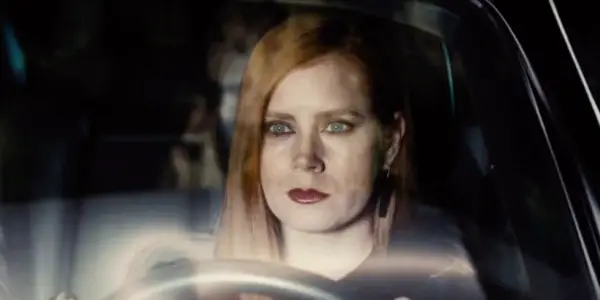
A few hours later, I was back at the Elgin and in line (clutching my umbrella due to the rain) for my penultimate screening of the festival. This honor went to Tom Ford’s Nocturnal Animals, which lit up Venice with its stylishly provocative presentation and pulpy plot. I claimed my ticket to the screening before the first reactions came out, so I was happy that my risk had paid off and that I was not going to regret my decision. I wondered how many of my audience would end up regretting their decision, however.
The question was even more pronounced in my mind when an elderly woman sat to my right, and the first thing that popped on the screen after the commercials was an obese, naked burlesque dancer. In fact, the entire opening credits consisted of a series of obese, naked burlesque dancers. Oh boy, I thought. This lady’s not going to last if the film will be this weird all the way through. She lasted, though. Whether she ended up liking the film or not, I don’t know, but she lasted. In fact, I didn’t notice anyone walk out; the only disturbance came from a man in front of me who was checking his phone for a few minutes at the beginning, but after an annoyed woman a few seats away imperiously demanded that he put it away, all was fine.
Did I want to walk out? No. For, while I recognized the oddness and (at times) unpalatable violence that propels the story-within-the-story, I was greatly entertained by the film’s moody, brooding tone, the gallows humor and the electric performances (especially from the supporting cast, with Michael Shannon and Aaron Taylor-Johnson being particular standouts, as is Laura Linney in a deliciously campy cameo). Revenge is a dish best served cold, as the saying goes, but Tom Ford says that it can be hot, too. Hot, risqué, reckless, crazy and even a bit ridiculous. It should never be boring, though, and the last criticism this film deserves is that it’s boring. It’s anything but.
I think the majority of the audience agreed with my sentiment, and maybe the old lady beside me did, too. As I walked to the exit, I had a sense that the buzzing around me was a positive one, and if there were people who outright hated it, I didn’t hear them. The only thing is, I still don’t know how to conclusively feel about Nocturnal Animals, despite having these past few weeks to let it sit with me. It’s very much its own animal and stood on its own amongst the other films I saw at TIFF, and it’s hard to compare it to anything I’ve seen recently. I do know that I liked it then and still do, but would I sit down with it again to solidify my opinion? All I can say is that it would depend on my mood and the time of day. It’s not something one would go to for a pick-me-up, even if there’s a lot of humor to be found in it.
Voyage of Time: Life’s Journey (Terrence Malick)
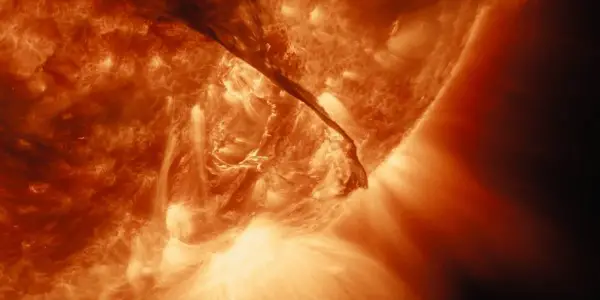
My final film of the festival was also on the final day of the festival: Sunday the 18th. At about the time Damien Chazelle’s La La Land was unsurprisingly crowned the People’s Choice Award winner, I was sitting inside another Scotiabank cinema, back in another front row seat to get the maximum impact from Terrence Malick’s first documentary feature, Voyage of Time: Life’s Journey. This one was not the forty-minute IMAX version, which was inconveniently added to the schedule during the festival after I had already gotten my ticket for the feature-length version. I don’t know how the two differ beyond the IMAX version being narrated by Brad Pitt and the feature-length by Cate Blanchett; I suspect the IMAX version cuts to the chase quicker and stays with the chase. Because the Blanchett version… hoo boy.
I think Malick is a visionary, and I wouldn’t have seen Voyage of Time had I not been spellbound and moved by the special effects in The Tree of Life. But context is important. The universe being born in The Tree of Life is beautiful because it speaks to the spirituality and universality of the story at its center. The universe being born in Voyage of Time is equally pretty to look at, but outside of a meaningful context, it simply… sits there, like a visually striking screensaver of days long gone.
Blanchett’s narration is a constant barrage of inane interrogations caught in the abstract. It’s as if she’s signing postcards to Mother Nature and just flinging them into oblivion, not expecting answers but still devoted to the questions all the same. And combined with the raw footage of human poverty that Malick intersperses with his special effects, it feels like the audience is being berated for stepping on the most beautiful flower that ever grew. We know that, Mr. Malick. Shaming us isn’t going to help matters.
Again, the special effects are sumptuous and, at times, awe-inspiring. For biology enthusiasts, I think this is a goldmine of goodness, with many lovely sequences showing how different animal species evolved. Strictly as a nature documentary, it has merits, but I can’t say its attempts to add a spiritual or philosophical element worked. In fact, it might have induced some audience members to check out entirely, as I heard someone say that he had slept for a good portion of it after it ended. Truthfully, I couldn’t blame him.
And thus ended my sixth year of TIFF. It didn’t go out on the highest of notes, but all in all, the quality of films I was privileged to see was aces. Certain Women, Moonlight, Arrival, Manchester by the Sea, Toni Erdmann, La La Land and The Red Turtle were all wonderful in their own distinct ways; Una and Nocturnal Animals were dark and intriguing forays into the human psyche; Loving and Lion were strong and sensitive biopics; Colossal and Yourself and Yours found fun ways to tackle the serious subject of alcoholism; I Am Not Madame Bovary and The Duelist took the questing epic in visually innovative directions, and though it was by far my least favorite film of the lineup, Voyage of Time was an undeniable technical achievement.
As for performances? I loved Lily Gladstone in Certain Women, André Holland in Moonlight, Amy Adams in Arrival, Casey Affleck and Lucas Hedges in Manchester by the Sea, Sandra Hüller in Toni Erdmann, Emma Stone in La La Land, Rooney Mara in Una, Michael Shannon in Nocturnal Animals, Joel Edgerton and Ruth Negga in Loving, Dev Patel and Nicole Kidman in Lion, Anne Hathaway in Colossal, and Lee Yoo-young in Yourself and Yours. Not only was this a great year for film, but the quality of acting was just as extraordinary.
Finally, I want to thank Film Inquiry for welcoming me into the fold by allowing me to write these entries over the past number of weeks. I hope you, the reader, enjoyed following my festival-goings as much as I enjoyed writing about it. I look forward to writing more about film in the coming months, and I’m extremely honored to share this platform alongside so many other talented writers. Keep supporting this website, and hopefully I’ll be able to cover another round of TIFF next year!
Have you ever attended a film festival? How similar was your experience to the one Tomas has described in his diary entries? Let us know in the comments below!
Does content like this matter to you?
Become a Member and support film journalism. Unlock access to all of Film Inquiry`s great articles. Join a community of like-minded readers who are passionate about cinema - get access to our private members Network, give back to independent filmmakers, and more.
Tomas is a chronic cineaste who studied English literature in university (in both the undergraduate and graduate levels), and hopes to pursue a career in writing. His passion for film began in earnest at the beginning of the 2010s, and since then he's been reveling at the vast horizons of the cinematic landscape like a kid at the proverbial candy store.













